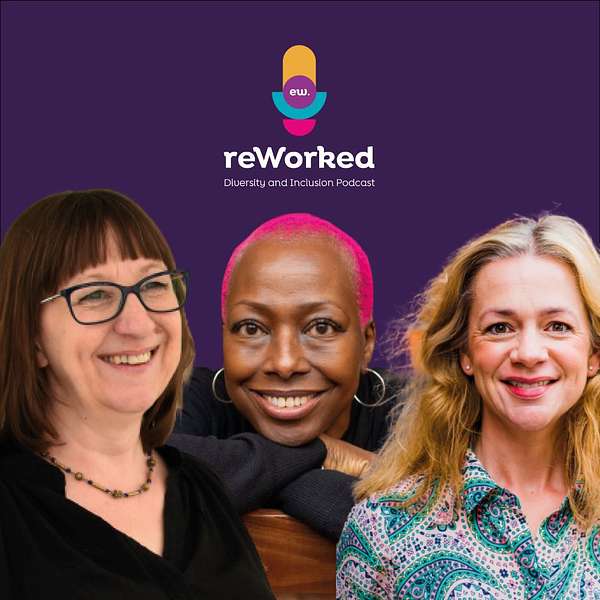
reWorked: the Workplace Inclusion Podcast
reWorked: the Workplace Inclusion Podcast
Series 4, Episode 17: Changing the Narrative on the Menopause - Taking an Intersectional Approach to Supporting Menopause in the Workplace (Part 1 of 2)
It's time to change the narrative on menopause at work. A one-size-fits-all approach cannot be applied to a diverse group of people who experience menopause and peri-menopause symptoms. So how can employers better support people affected by its symptoms and account for intersectionality?
EW Group Managing Director, Rachael Wilson, spoke with two workplace menopause experts - Mel Healy and Jane Stubbs - about how organisations can take an intersectional approach to workplace menopause support. It is crucial businesses and leaders understand the health inequalities and cultural nuances that mean women from different groups (whether race, religion, disability, LGBT+, class or any other identity) will experience, vocalise and receive support for menopause symptoms very differently.
Sharing their own personal experiences, they also discuss the different approaches organisations can take to support those experiencing symptoms of the menopause in the workplace, from awareness training and staff consultation sessions, to reviewing policies and procedures.
Mel Healy is a sports therapist, bio-medical scientist and lecturer with a passion for EDI. She is particularly interested in how our different socio-economic backgrounds, ethnicity and cultural pressures affect us in the workplace. Follow Mel on Twitter at @MelinaHealy, and on Instagram at lets_talk_menopause.
Jane Ordaz is a menopause awareness advocate and the Founder of a Facebook community group, the Global Menopause Community, to help other women experiencing menopause not living in their passport countries, offering non-country-based support.
This is part 1 of a 2 part series discussing menopause at work.
Follow EW Group on Twitter and LinkedIn for the latest news and thinking in DEI or get in touch to find out how we can help you build a more inclusive workplace.